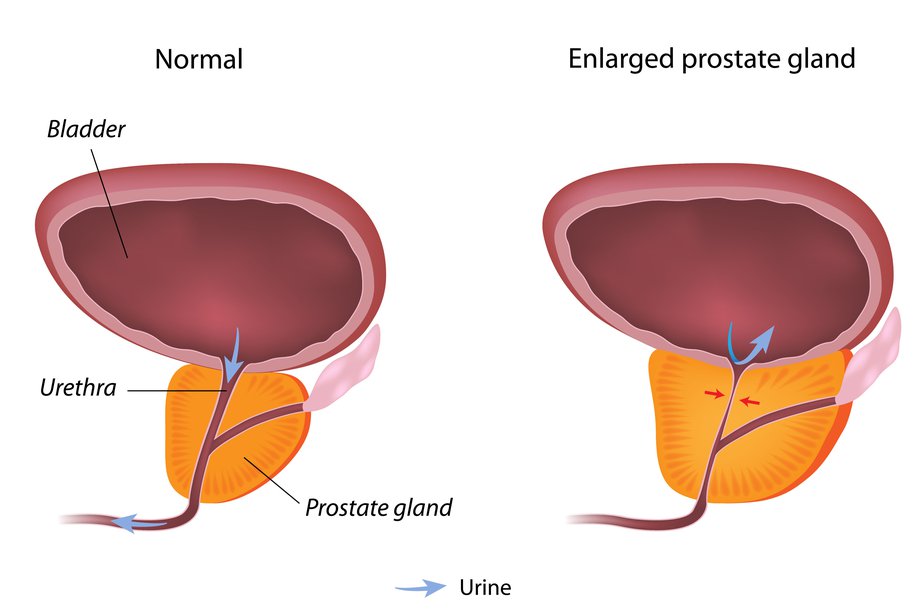Prostate Health
Benign prostate enlargement (BPE) is the medical term to describe an enlarged prostate, a condition that can affect how you pass urine.
BPE is common in men aged over 50. It is not a cancer and it isn’t usually a serious threat to health.
Benign prostate enlargement (BPE) is the medical term to describe an enlarged prostate, a condition that can affect how you pass urine.
BPE is common in men aged over 50. It is not a cancer and it isn’t usually a serious threat to health.
Symptoms of benign prostate enlargement
The prostate is a small gland, located in the pelvis, between the penis and bladder.
If the prostate becomes enlarged, it can place pressure on the bladder and urethra (the tube through which urine passes).
This can affect how you pee and may cause:
- difficulty starting to pee
- a frequent need to pee
- difficulty fully emptying your bladder

In some men, the symptoms are mild and don’t need treatment. In others, they can be very troublesome.
Many men worry that having an enlarged prostate means they have an increased risk of developing prostate cancer. This isn’t the case.
The risk of prostate cancer is no greater for men with an enlarged prostate than it is for men without an enlarged prostate.
Causes of benign prostate enlargement
The cause of prostate enlargement is unknown, but it is believed to be linked to hormonal changes as a man gets older.
The balance of hormones in your body changes as you get older and this may cause your prostate gland to grow.
Complications of prostate enlargement
Benign prostate enlargement can sometimes lead to complications such as:
- urinary tract infection
- acute urinary retention
Acute urinary retention (AUR) is the sudden inability to pass any urine.
Symptoms of AUR include:
- suddenly not being able to pee at all
- severe lower abdominal pain
- swelling of the bladder that you can feel with your hands
Go immediately to your nearest accident and emergency (A&E)department if you experience the symptoms of AUR.
